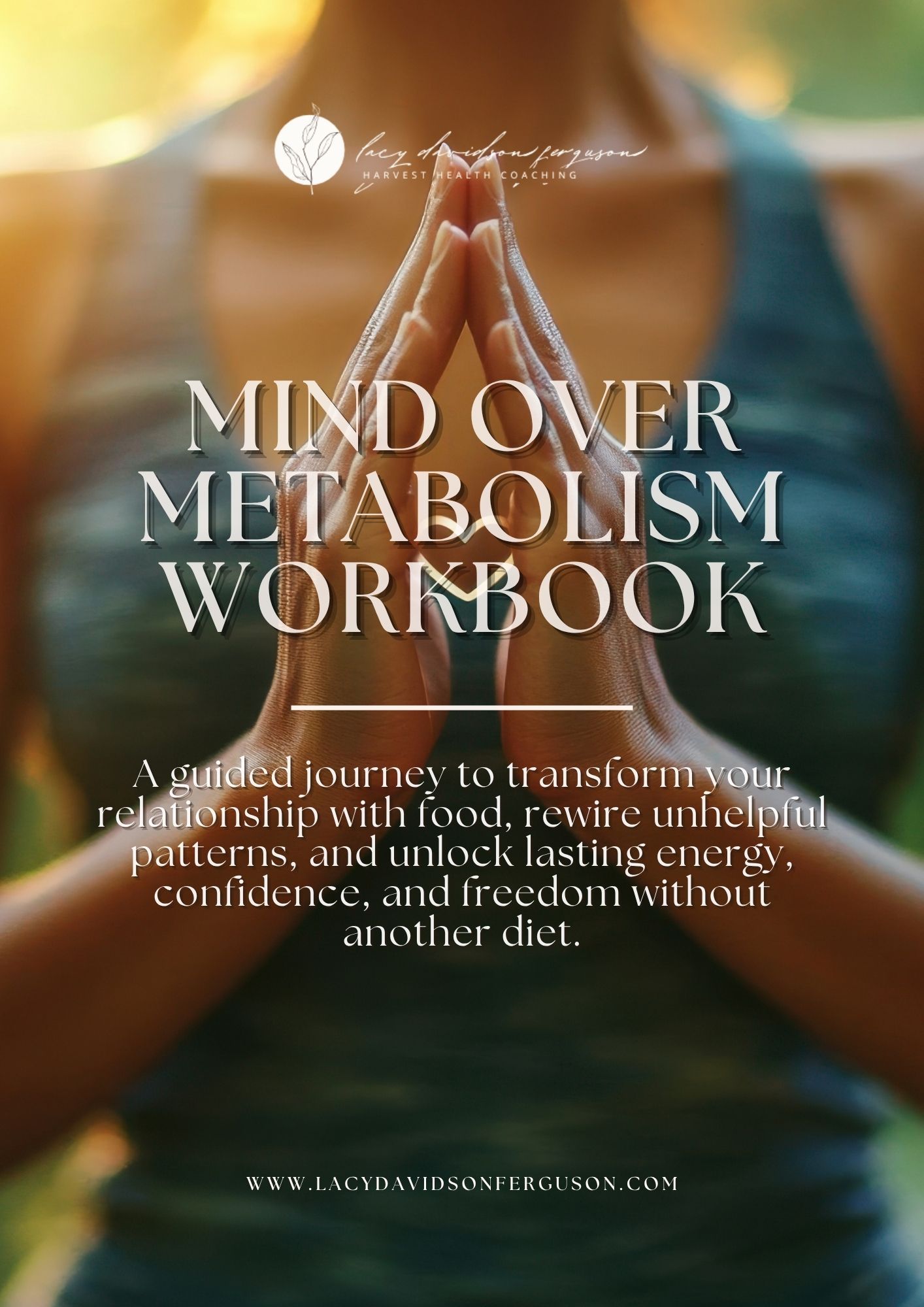The Stress–Metabolism–Nutrition Connection: Why Relaxation Is the Missing Ingredient in Your Health
Oct 15, 2025The Stress–Metabolism–Nutrition Connection: Why Relaxation Is the Missing Ingredient in Your Health
When it comes to health, we tend to focus on the physical, the food on our plate, our exercise routine, and the nutrients we consume. But beneath it all lies an often-overlooked truth: stress can undo even the healthiest diet.
Marc David, founder of the Institute for the Psychology of Eating, teaches that stress is one of the most powerful forces influencing how your body digests, assimilates, and burns food. It’s not just what you eat, but who you are while eating that determines your body’s response.
How Stress Impacts Metabolism
When you’re stressed, your body enters a state of fight or flight. Heart rate increases, blood pressure rises, and blood flow shifts away from your digestive organs toward your muscles and limbs. This physiological change shuts down digestion and nutrient absorption.
No matter how healthy your meal is, if you eat in a state of anxiety, distraction, or tension, your body can’t fully receive its benefits. Food may move through your system partially digested, leading to fatigue, bloating, and cravings, all while your metabolism slows down.
On the other hand, relaxation activates the parasympathetic nervous system, what Marc David calls the “rest and digest” mode. In this state, the body is calm, oxygen flow improves, and digestion becomes more efficient. Calories are metabolized more smoothly, and nutrients are absorbed more completely.
The Mind–Body Feedback Loop
Stress doesn’t just affect metabolism; it also influences your relationship with food. Many people use food to soothe anxiety or numb emotions, creating a cycle where stress drives overeating and guilt, which in turn creates more stress.
Mind–Body Nutrition breaks this cycle by helping you develop awareness around your stress response. When you pause before eating, take a few deep breaths, and bring mindfulness to your meal, you shift your body’s chemistry instantly.
A relaxed state isn’t just pleasant; it’s metabolically intelligent.
Practical Ways to Lower Mealtime Stress
You can start transforming your metabolism today by integrating simple relaxation practices into your eating rhythm.
Pause and breathe before your first bite. Two or three slow breaths can change your body’s entire digestive response.
Slow down your pace of eating. Pleasure and awareness activate your body’s natural relaxation response.
Create a calm eating space. Step away from your desk, silence distractions, and let meals be moments of restoration.
Release guilt or perfectionism. Self-criticism is one of the most stressful mental habits we carry.
As Marc David notes, “You could be eating the perfect diet, but if you’re in a state of fear or tension, your metabolism won’t cooperate.”
The Healing Power of Relaxation
Relaxation is not a luxury; it’s a biological necessity. When you cultivate it daily, your digestion improves, your energy increases, and your cravings begin to settle.
By tuning into your body’s wisdom and respecting its rhythms, you unlock a natural intelligence that no diet plan alone can deliver. Stress may be unavoidable, but your response to it is within your power, and that choice can transform your health from the inside out.


